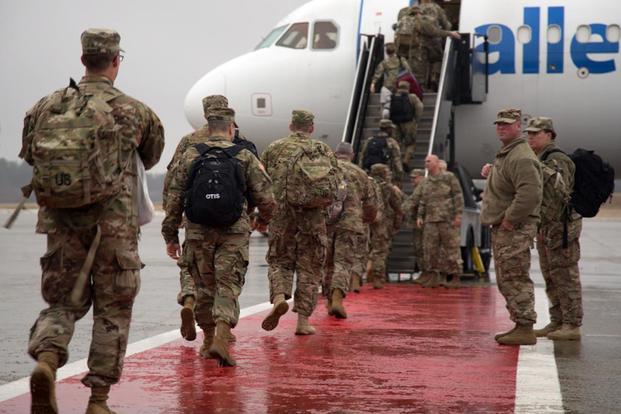The House's version of the fiscal 2020 defense policy bill would establish a pilot program to allow active-duty service members to freeze their sperm or eggs before deploying to a combat zone.
An amendment offered Wednesday during a marathon markup of the House's fiscal 2020 National Defense Authorization Act would revisit an Obama-era proposal to require the Defense Department to cover the cost of gamete cryopreservation and storage for troops who requested the service before a deployment.
Under the amendment offered by Rep. Rick Larsen, D-Washington, 1,000 service members would be provided the benefit at no cost to them. The Pentagon, or a contracted facility, would preserve and store the gametes for up to a year after the member separated or retired from service.
After that, the member would have the option to pay for storage themselves.
Gamete preservation and storage for troops was first introduced in 2016 by Defense Secretary Ash Carter as part of the Pentagon's "Force of the Future" initiatives.
Some of the sweeping personnel policy changes that occurred that year included lifting the ban on women in operational combat jobs and allowing transgender personnel to serve openly.
Related: Military Pay Raise Safe, All Else is Uncertain in Defense Budget, Key Lawmaker Says
But the cryopreservation pilot never got underway and was dropped completely after the 2016 election.
More than 1,300 veterans of Iraq and Afghanistan suffered groin or genitalia injuries that would have required advanced reproductive treatment or surgery if they wanted to start a family.
Advocacy groups have pressed Congress to improve fertility services for service members, saying the Defense and Veterans Affairs departments should cover advanced reproductive technologies to ensure that personnel can start families if they choose to.
Another provision in the proposed bill, also aimed at providing service members more options in balancing careers and families, is a measure that would allow active-duty moms to remain shoreside for a year after having a baby.
The Navy, Air Force and Coast Guard currently offer deployment deferrals of up to a year after childbirth; the Army and Marine Corps allow for a six-month deferral.
The bill would standardize the benefit across the military services.
The Coast Guard instituted the one-year deployment deferral option earlier this year as part of ongoing efforts to attract and retain women to the service.
Other personnel initiatives in the proposed $725 billion bill include a 3.1% pay raise for active duty service members; measures that would extend casualty assistance and compensation to families of ROTC students who die while serving as cadets or midshipmen; and initiatives designed to encourage reporting and prosecution of sexual assaults at military service academies and across the Defense Department.
The proposed bill must clear the House, be reconciled with the Senate and be signed by President Donald Trump before it could become law.
-- Patricia Kime can be reached at Patricia.Kime@Military.com. Follow her on Twitter at @patriciakime.














